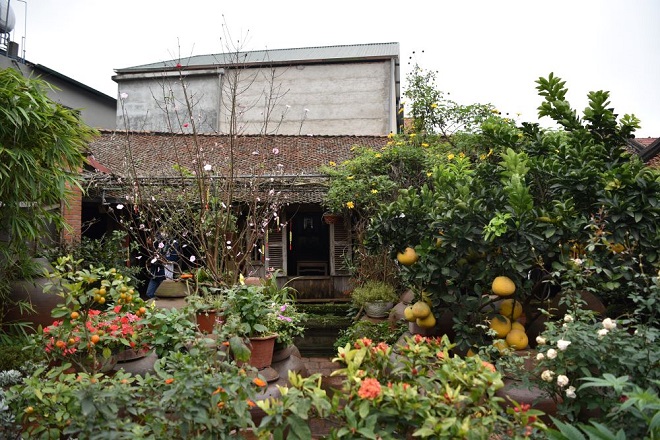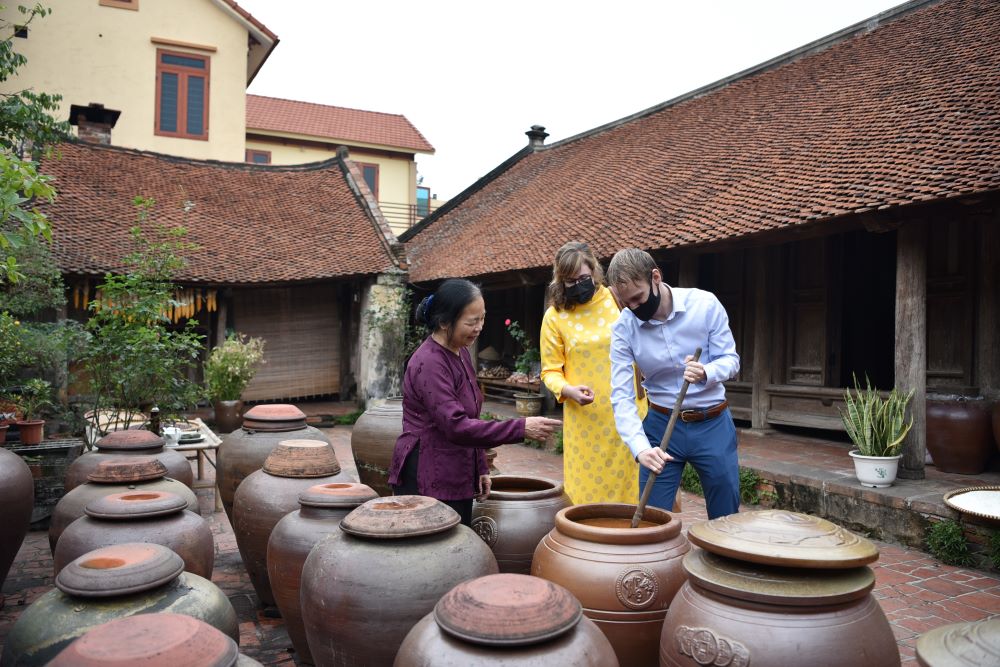Hanoi has just promulgated a document on developing rural tourism in the period of 2022-2025, in which localities will join the program with concrete plans to promote their special agritourism services.

Located about 45 kilometers west of downtown Hanoi, Duong Lam Village in the capital’s Son Tay Town, still preserves many enchanting historical and cultural features. Photo: Khanh Huy
Each district will have from one to three new tourism products and services or travel destinations within the next three years. "The promotion of tourism in the suburbs of Hanoi needs to be based on the principle that local people are the center of all activities,” the City People’s Committee suggested.
"The actors involved in agritourism are local farmers, cooperatives, households and local businesses."
In the coming time, the city will focus on building and piloting six tourism models in rural areas, including agricultural and rural tourism; community tourism; smart tourism village; craft village tourism; green tourism; and responsible and sustainable conservation tourism in Hanoi’s outskirts districts, namely Thuong Tin, Dan Phuong, Thanh Tri, My Duc, Thach That and Son Tay Town.
In addition, Hanoi will foster the production of souvenirs, which are seen as the symbol of every locality and craft village, to build up branding for its tourism service. The capital city tries to have more OCOP products rated with three stars and above.

International travelers learn how to make soy sauce in Duong Lam Ancient Village. Photo: Khanh Huy
According to Director of Hanoi Department of Tourism Dang Huong Giang, there is a need for closer coordination between craft villages, authorities of the localities, which are home to tourist sites, and travel businesses in creating unique gift designs that are imbued with the characteristics of the destinations and suit visitors’ preferences.
“Developing tourism in the capital in association with the activities of craft villages is the main task, including souvenir creation, contributing to promoting Hanoi's tourism brand and attraction,” she said at a conference on Hanoi tourism gift held last September in Hanoi.
To implement the above policies, Hanoi authorities will conduct vocational training and provide tourism knowledge to at least 80% of local tourism personnel. They are people who are working at tourism service establishments, craft villages and regulatory bodies in the field in the suburbs of Hanoi.
In addition, the city will promote the development and diversification of other rural economic sectors alongside tourism such as agriculture, aquaculture and forestry in the locality.
It will also enhance communication to raise awareness of local people about sustainable tourism. Meanwhile, some tourism promotion activities will also be conducted by relevant authorities in localities in the near future.
Jenna Duong